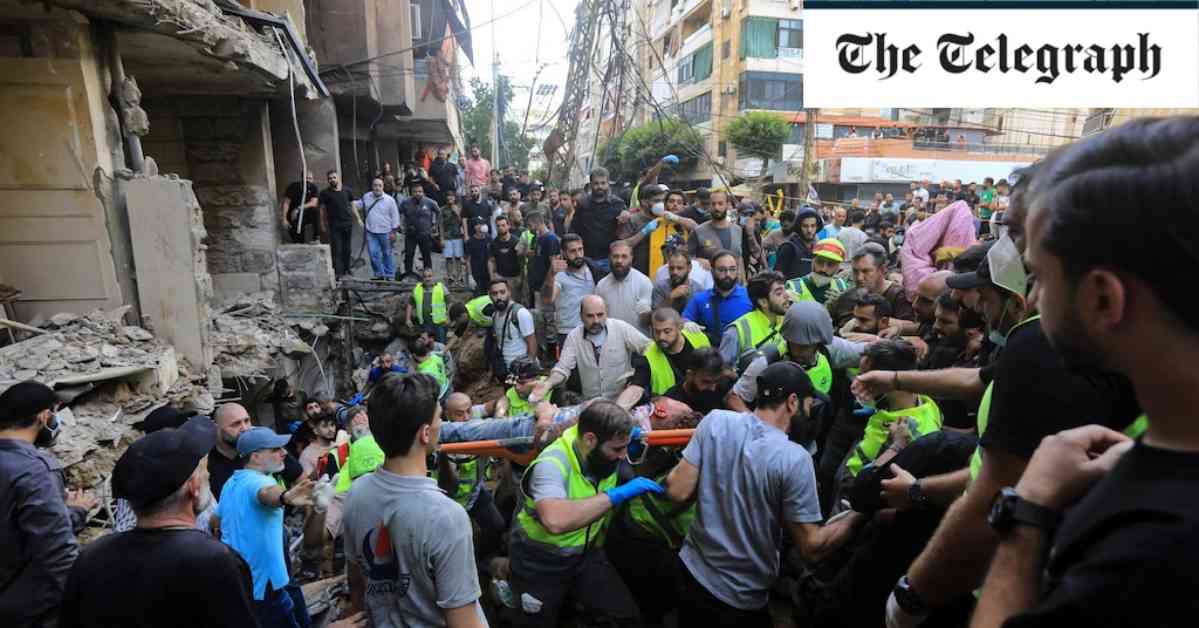Israel Confirms Killing of Hezbollah’s Second-in-Command in Latest Israel-Hamas War
The Israel Defense Forces (IDF) have confirmed the targeted airstrike that resulted in the death of top Hezbollah commander Ibrahim Aqil in Beirut. Aqil, the second-in-command of the militant group, was killed alongside other senior commanders of the elite Radwan force. The strike reportedly eliminated around 20 commanders, nearly the entire leadership of Hezbollah’s special forces unit. Lebanese authorities reported at least nine killed and 59 injured in the attack.
Aqil, who has been wanted by the U.S. for over four decades with a $7 million bounty on his head for his involvement in the bombing of the U.S. embassy in Beirut, has not been officially announced dead by Hezbollah. The assassination occurred during intense fighting between IDF and Hezbollah, with the latter launching 140 Soviet-era Katyusha rockets into northern Israel.
Amidst the escalating conflict, fears of a wider regional conflict have been growing following a series of pager and walkie-talkie explosions that claimed 37 lives and injured thousands in Lebanon on Tuesday and Wednesday. The situation remains volatile as both sides continue to exchange attacks and tensions rise in the region.
### IDF Confirms Aqil’s Death
The Israeli military officially confirmed the killing of Ibrahim Aqil and other senior commanders of Hezbollah’s Radwan special forces unit in a strike in southern Beirut. The targeted airstrike was aimed at the second-highest ranking member of Hezbollah, Ibrahim Aqil, as confirmed by a senior Israeli official.
### Hezbollah’s Elite Radwan Unit Also Targeted
Reports indicate that members of Hezbollah’s elite Radwan unit, led by Ibrahim Aqil, were believed to have been killed in the Israeli strike in Beirut while holding a meeting. The attack resulted in casualties, with at least eight killed and 59 injured according to Lebanon’s health ministry.
### Who was Ibrahim Aqil?
Ibrahim Aqil, a top Hezbollah commander, is believed to have been killed in the Israeli strike in Lebanon’s capital of Beirut. Aqil, in his 60s, rose to the position of second-in-command to Hassan Nasrallah, Hezbollah’s leader, following the high-profile assassination of Fuad Shukr in July. Aqil also headed the Iran-backed militia’s elite “Radwan” unit and sat on Hezbollah’s highest military body, the Jihad Council. He has been wanted in the U.S. for decades for his role in the 1983 bombings of the U.S. Embassy and Marine barracks in Beirut, along with other alleged terrorist activities in the 1980s.
The escalating violence in the region has led to casualties on both sides, with ongoing attacks and counterattacks between Israel and Hezbollah. The situation remains fluid, with the potential for further escalation and wider regional conflict looming over the Middle East.












